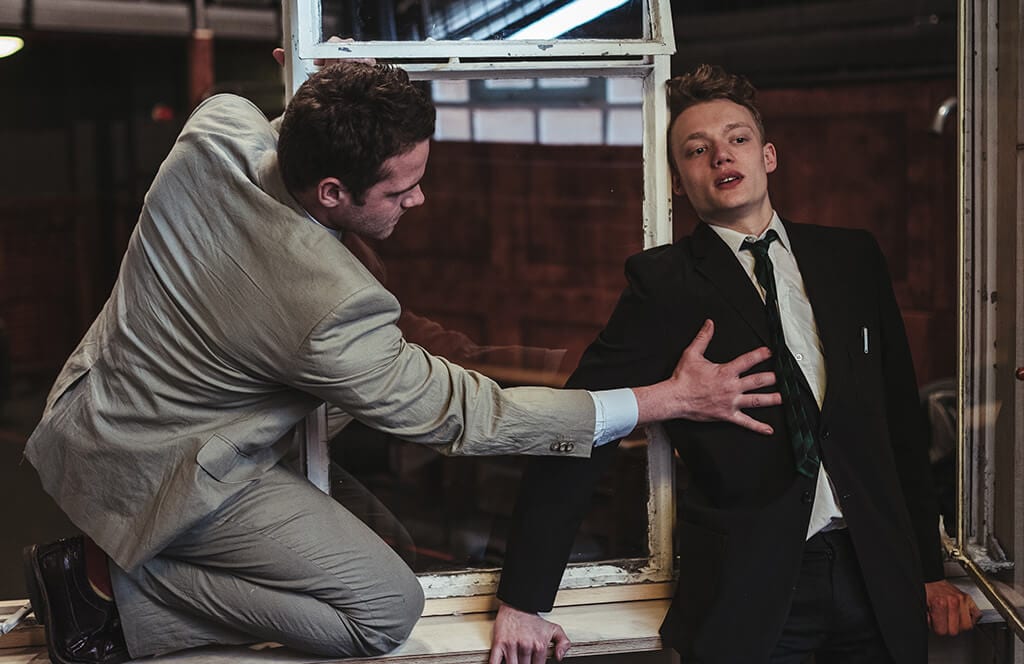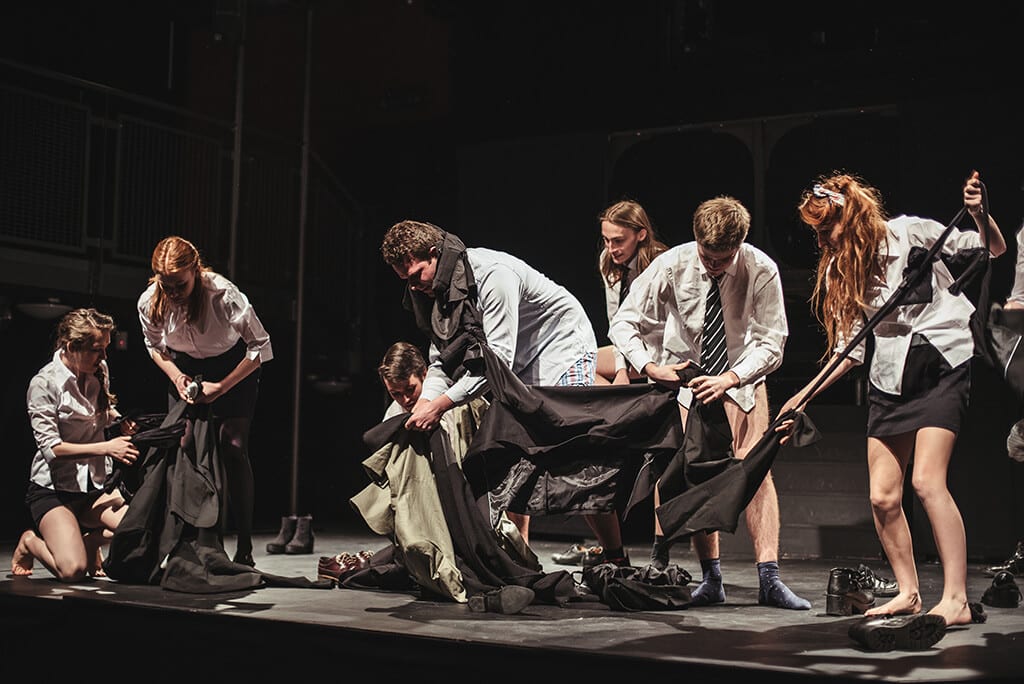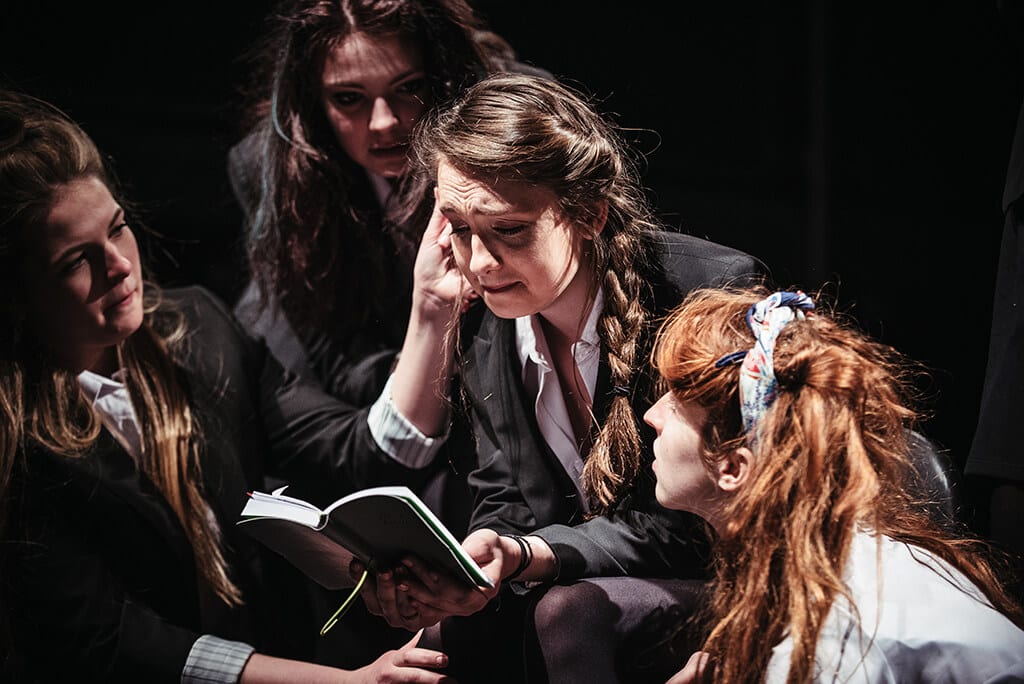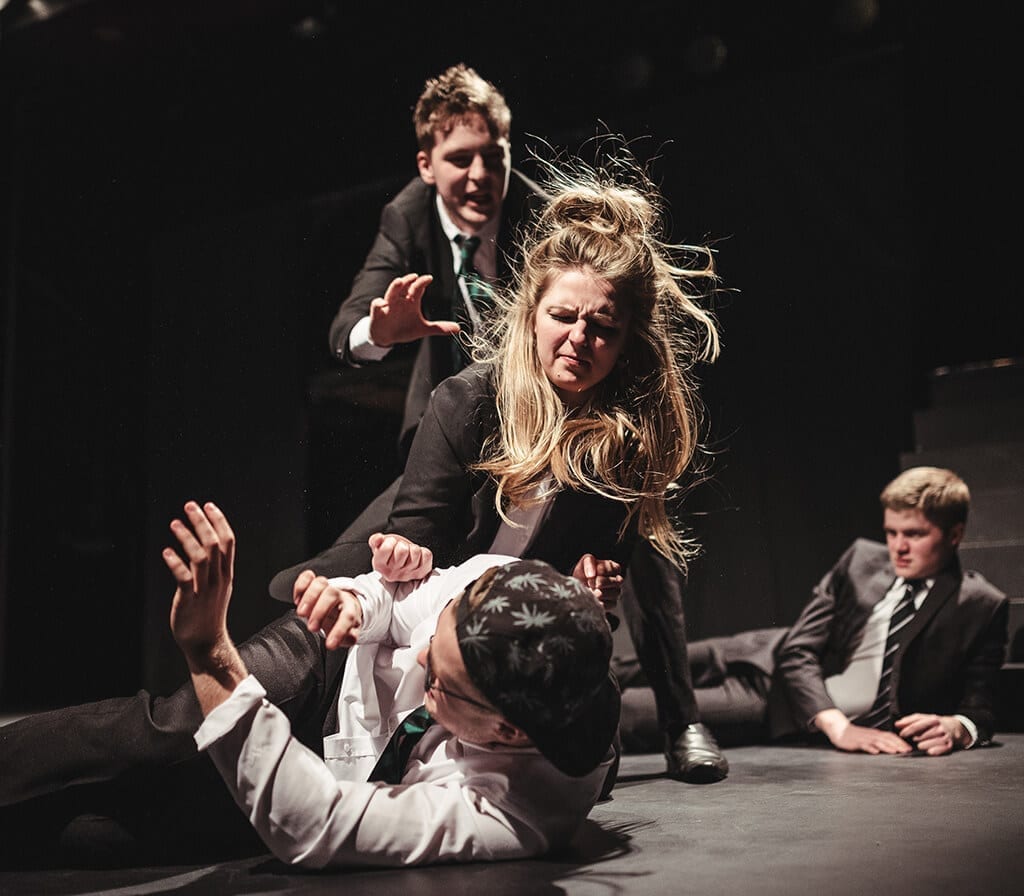The sole setting for Jonathan Lewis’ ‘A Level Playing Field’ is a school classroom covered with photocopied pictures of a maniacal, perhaps drug-fuelled Nicholas Cage. Before any actors appear we hear a stereotypical ‘teen’ soundtrack of watered-down grime, bad pop punk and mainstream rap, and a Hodding Carter quote (‘There are two things we should give our children: one is roots and the other is wings’) is quickly defaced by an invisible hand. This is ‘The Cage’: a room in which A-Level students at a mixed private London school are made to wait between their final exams (with mobile ‘phones taken by the teacher). However, for reasons unknown, the students (who enter the room one-by-one) remain unsupervised, and we gradually hear their stories and watch the strands of the plot develop as the first hour progresses.
Taking into account the opening misrule and the setting of the play I worry that the play would fall into well worn (but well-meaning) despairing truisms about the state of youth and education in 2010s Britain (we are told that it is June in London in the program notes). The students’ chat also focuses on familiar subjects of exams, drugs, sex, burgeoning romance, acceptable racial terminology, Islam, immigration, parents, future plans, the perils of social media. In addition, I fear that the characters would be stereotypes: the cocky bully (Albanian wannabe rudeboy Zachir, played by AJ Lewis), the stoner (Cal – Joe Taylor), the emo/goth (Twink – Elsa Perryman Owens), the nerd (a number of potential candidates), the posh girl (again, a few here)….. But what I find instead is a group of individuals, with their own multi-layered, always-questioning take on their lives and the world outside.
There was no authorial preaching or sign-posting, and the messages which were communicated were never heavy-handed: they were hard-won, and lived-in. The talk is fast, witty, delighting in puns, and street-smart (knowingly forced at times due to the wealthy backing, Aristotle’s take on education also making an appearance amongst the slang). There’s constant giggling from the audience as no view is unchallenged and any outright statements of certainty are quickly taken down by a cutting jibe. The phrase ‘banter’ recurs again and again, bringing with it knowing undertones of the infamous interview with Stephen Lawrence’s suspected killers on Martin Bashir’s show, while outside police sirens and building chaos and rumbling menace, plus video projections of protest, bring intimations of outside urban chaos (and memories of the 2011 riots).
Much is also made of The Cage’s isolation from the rest of the school and the world, and the characters’ limbo status, in-between exams, childhood and adulthood, school and university. We are particularly reminded of their trapped isolation and the lack of adults by a clever allusion to ‘Lord of the Flies’, and the physical back and forth of the actors pushes the claustrophobic stage set (within the tiny theatre) literally to its limits.
Allowing each character to enter the room separately allows us to see how they interact with the expanding group, so we learn about them through their relationship with the whole. In addition each of the students gets a brief soliloquy where we hear them talk to the audience, and themselves, displaying openness and tongue-in-cheek self-deprecation and awareness. There’s a vulnerability to the pupils too, and what is most affecting is how quick they are to support each other as well as mock and ridicule. No character is allowed to intimidate another for long without the others rallying round.
I don’t want to say too much about the plot for fear of spoiling it. There is a rollercoaster pace, with successive revelations and piled-up situations, as numerous narratives appear via both the recollection of past actions in conversation and the new events which unravel as each character arrives, climaxing in the entry of the teacher (Mr Preston – Joe Layton – the first adult involved) in Act 2. Ok, there is a cartoonish quality to some of the doofus comedy scenarios near the end which take the play away from the realm of real-life drama, but the sheer charm of the writing and acting wins us over, and it’s great entertainment.
With a true ensemble cast, which works together as one, it seems wrong to single out any particular member, but special praise must go to the young Brad Dourif dead ringer Jojo Macari as Hook, who has a wonderful over-serious intensity and staring- eyed, rubber-legged physicality, serving as a comic foil and borderline worry case. The final view of the other parts of the teenagers’ lives, after they’ve left the stage, via projected snapshots, was moving and life-affirming: you wanted to learn more about them. Only after the play finished did I read in the program that none of the student parts were acted by professionals, but by recent school leavers, which makes the finale even more poignant. The play was a joy.




